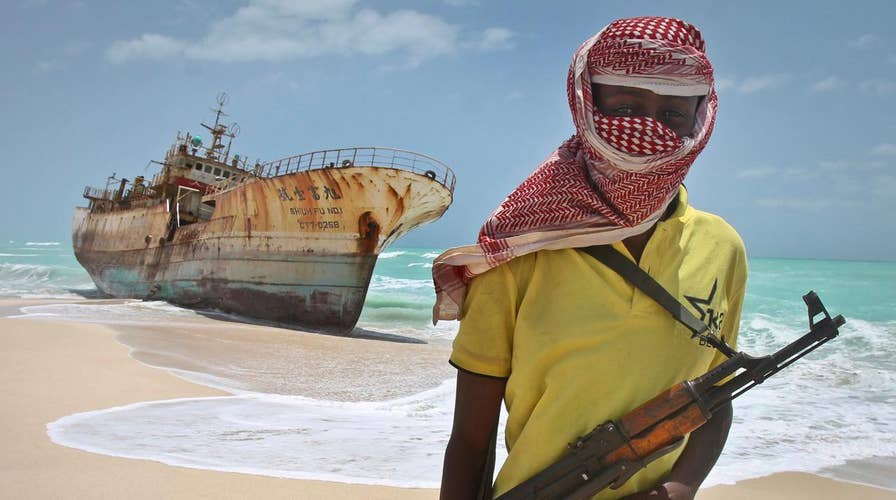Pirates reportedly hijack oil tanker off coast of Somalia
At least eight Sri Lankan crew members were on board the freighter
After five years of no major attacks on merchant vessels, piracy around the Horn of Africa seemed to be on hiatus. Acts of piracy in those treacherous waters have fallen sharply since 2012, according to statistics released by the United States Navy. The Navy credits aggressive patrolling by international forces and increased vigilance by the commercial shipping industry for the decrease.
However, in the past month, Somali pirates have intercepted five ships, raising concerns that piracy has returned to the Indian Ocean, beginning with the kidnapping of a Sri Lankan crew from the Aris 13 oil tanker on March 13th (they were later released without a ransom). Nobody thinks the problem will end until a stable government is restored in Somalia.
Piracy is also on the rise on the other side of Africa. Armed groups based along Nigeria’s coast have made that region the most dangerous for seafarers. That coast is also a major oil shipping route. Now that oil prices have dropped, pirates there have taken to kidnapping crew members for ransom rather than siphoning off oil – the abductions have proved more lucrative.
The nature of piracy is quite different on the two sides of the continent. Factors driving the resurgence in piracy include drought, famine, corruption, and a surge of smuggled weapons as well as the influence of the Islamic State.
PIRACY ATTACKS OFF WEST AFRICA NEARLY DOUBLED IN 2016
Around the Horn of Africa in the East, Somali pirates seek to seize ships and crews for ransom, and have ventured deep into the Indian Ocean. In the Gulf of Guinea in the West, attackers are more intent on stealing cash and cargoes of fuel, such as diesel, from ships coming in to port.
Incidents have stretched all the way from the Ivory Coast to Angola, but the root of the problem lies in Nigeria. Most acts of piracy are committed in Nigerian seas, by Nigerian criminals. The trouble at sea is ultimately tied to the country’s dysfunctional oil industry and the violent politics of the Niger Delta, where most of the oil is produced.
Nigeria is the world’s eighth-largest oil producer; nevertheless, it suffers from shortages of refined fuels. After all, about 12 percent of Europe’s imported oil comes from West Africa. Despite the oil, sea traffic around West Africa is small compared with the arteries connecting Europe and Asia through the Suez Canal.

